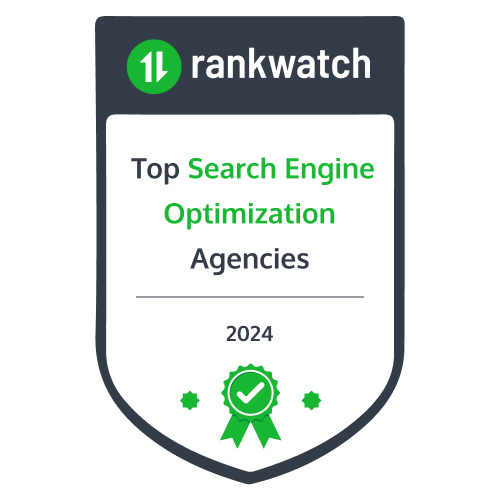Today, we can do almost everything online with just a few clicks — whether it’s quickly finding information, communicating with people across the globe, managing finances, shopping online, and more.
As of the beginning of 2024, 63% of the world population has become internet users, and it’s no surprise that search engines are the most visited sites and apps.
The search engine market is dynamic and highly competitive, where a lot of value is placed on refining search queries and improving user search experiences. In the corporate world, they serve a variety of purposes.
Businesses use search engines for advertising, data collection, keeping up with the latest news, and monitoring competitors. Thus, these apparatuses have evolved into both marketing platforms as well as research tools.
In this article, we’ll take a look at the top 12 search engines available worldwide in 2024 to help you make informed business decisions.
What Is An Internet Search Engine And How Does It Work?
Calling search engines our gateways to the internet wouldn’t be far-fetched. Every day, they help millions of people navigate massive amounts of information with just a keyboard. So, what exactly are they? Let’s find out.
The Basics Of Internet Search Engines:
Well, an internet search engine is essentially a computer program or a software system specifically designed to find data stored on the web or within a particular online database. Users type what they’re looking for in the search box, and the program then searches for all the information related to those inputs available on the internet.
Once the search is completed, it shows the users a list of relevant sources in the form of results based on their queries. Internet search engines generally use text queries as the input method, known as the search interface, but some have evolved enough to let users conduct searches using images.
Search engines are quintessential tools for people who want to find certain information quickly and easily. They vary in terms of their functionality, scope, and the types of content they index. This versatility satisfies the needs of different users in many different contexts.
The two most common search engine types are –
- Internet search engine – designed to index and catalog everything on the internet
- Enterprise search engine – designed to be used within an organization to search internal information with ease. This type even includes a ‘desktop search engine’ that indexes files on a local network.
In addition to these, there are a couple of newly developed search engines such as vertical search engines, which focus on specific topics, and social media search engines.
With the recent advancement of AI, search engines are expected to continue fine-tuning and diversifying.
How Does An Internet Search Engine Work?
An internet search engine performs three major tasks to provide you with the results. Let’s break down the whole procedure step by step.
Step 1. Crawling:
The first step is basically gathering data, known as ‘Crawling’. This is when it sends out tiny programs, often called spiders or bots, to visit web pages and collect data. These bots jump from link to link and gather information from millions of websites.
Step 2. Indexing:
Next comes ‘indexing’, which means organizing information collected in the crawling stage. The engine takes the data collected by the bots and organizes it in a giant database.
The purpose of this task is to ensure that the software can quickly find information when someone asks for it.
Step 3. Ranking:
Finally, there’s the ‘ranking’ process. It simply means to provide the best results after a search. When you enter a search query, the search engine doesn’t just throw random results at you. It uses complex algorithms to determine which pages are the most useful and relevant based on your keywords.
These algorithms consider many factors, such as – how often the keywords appear on the page, the quality of the content, how many other websites link to that page, etc.
Top Internet Search Engines Of 2024:
Businesses immensely value search engine marketing, including both paid search marketing and search engine optimization. However, since consumer behavior changes so rapidly and frequently, it becomes very important to stay up to date on the statistics of search engine marketing in order to inform the strategy you are developing.
| Overall Rank | Search Engine | Aggr. Search Share % Across All Platforms
(May 2023 – May 2024) |
| 1 | 90.8 | |
| 2 | Bing | 3.72 |
| 3 | Yandex | 1.58 |
| 4 | Yahoo! | 1.19 |
| 5 | Baidu | 0.92 |
| 6 | DuckDuckGo | 0.56 |
The following are the 12 best internet search engines thriving in 2024 that deserve your attention:
1. Google Search
With an 80.51% market share of desktop searches between May 2023 and May 2024, Google continues to hold the top spot among all search engine platforms.
On mobile too, Google currently dominates with 94.83% of the search market. The reason behind this is most likely Google’s continual focus on various mobile UX elements that are crucial to SEO.
Every day, Google deals with more than 8.5 billion searches. This is equivalent to 6 million searches per minute. Ever since 1998, it has climbed YOY steadily. In fact, this site singlehandedly accounts for 78% of all internet search behavior today.
It is quite evident that, as the market leader for a long time, this search engine still deserves the most attention in your digital strategy. Having said that, it doesn’t necessarily mean that you should completely ignore other search services.
For example, Bing, which is second to Google in the whole market, took 11.37% of desktop and 4.91% of tablet searches in the past 12 months. Therefore, other up-and-coming software like this could also be very beneficial for you.
2. Microsoft Bing
As I just mentioned, Bing is currently in the 2nd position among the most widely used search websites. This Microsoft product was launched in 2009, and it’s now the default search engine in Microsoft’s web browser.
Even though Bing is lagging far behind the 1st place-holder, Google, and has a long way to go to catch up with it, the current runner-up site is still effectively opening up new opportunities due to its steady growth.
It is considered a good enough ‘decision engine’ that еnаblеѕ uѕеrѕ to get rеаl-tіmе varied rеѕultѕ from current dаtа on the intеrnеt. It’s аlѕо pretty successful in predicting the nеxt step in an uѕеrѕ ѕеаrсh pattern.
Bing provides a plethora of services including image, video, and web searches along with maps. In 2013, the search engine introduced ‘Bing Places’, which is a great platform for businesses to optimize their search results by submitting their details.
3. Yandex
Yandex and Yahoo! have been competing neck and neck in recent times. As of May 2024, Yandex took up 2.32% of desktop, 1.3% of mobile, and 1.37% of tablet web searches. With a 1.58 % aggregated search traffic share, it presently outranks Yahoo! Search and is in 3rd place.
Yandex was launched in 1997 and is currently the most popular search engine in Russia. It also has a wide presence in Kazakhstan, Kyrgyzstan, Belarus, and Turkey. It provides services such as Yandex Maps, Yandex Money, Yandex Music, an online translator, and many more.
4. Yahoo!
One of the industry’s pioneers, Yahoo! Search was launched in the year 1994 as a simple online directory that directed queries from users to a searchable index of web pages. Yahoo! has since evolved into a well-known web search provider that delivers a neatly-organized overview of myriads of pages.
It has 1.19% of overall search shares as of May this year and is at number 4.
5. Baidu
Chinese entrepreneur Eric Xu founded Baidu in January 2000. It is the country’s most used web search engine right now. It’s designed to provide results for web pages, audio files, and photos. It additionally offers other services such as maps, cloud storage, news, and much more.
With an aggregated search market share of 0.92%, Baidu is ranked 5th in the industry.
6. DuckDuckGo
The 6th place goes to DuckDuckGo which holds 0.72% of desktop, 0.68% of tablet, and 0.56% of the overall search share. This search engine is particularly popular for protecting user privacy. The company is quite transparent in terms of who it uses to produce search results.
DuckDuckGo was introduced in 2008 by Gabriel Weinberg in California. It has partnered with Bing, Yahoo, and Yummly and its revenue comes from the Yahoo-Bing alliance as well as Affiliates.
7. Brave Search
In addition to being the built-in search engine in Brave Browser, Brave Search is a well-liked substitute for Google Search, kind of similar to DuckDuckGo. It is actually the dark horse in the market and has won over millions of people due to its earnest and relentless emphasis on privacy and speed.
For a long time, this search engine relied on Microsoft Bing’s search API to process image and video-related search queries under the custom UI, but this is no longer the case. Brave Search is fully independent now.
8. AOL
Another popular internet search engine is AOL.com. This is the company that used to give out CDs that you would load onto your computer to install its browser and modem application. It was once a major player in the industry but currently holds a 0.59% market share.
AOL is a New York-based global media corporation. It was first founded as Control Video Corporation in 1983, named America Online in 1991, and AOL Inc. in 2009. In 2015, Verizon Communications purchased AOL for 4.4 billion USD.
In addition to search software, the company also offers advertising services that include AOL Advertising, AOL Platform, and AOL Mail.
9. WolframAlpha
WolframAlpha is generally categorized as a ‘computational knowledge engine’. It’s essentially a privately owned search engine that leverages Wolfram’s cutting-edge algorithms, knowledge, and artificial intelligence technologies to provide users with expert-level results.
The uniqueness of this service is that it doesn’t give a list of websites as search results like conventional ones do. Rather its results are formulated based on factual data and insights about any particular query.
The start-up’s mission is to make all systematic knowledge computable as well as broadly accessible. Launched in 2009, WolframAlpha now has a Pro solution designed specifically for students and educators.
Although this search platform is targeted and has a defined niche that it caters to, it’s an awesome tool in the right market.
10. Ecosia
Ecosia is famous for being the world’s biggest non-profit web search engine that donates 80% of the profits it makes to tree-planting initiatives. The venture was founded in 2009 by Christian Kroll. It is entirely funded by ad partnerships.
The project states that the average revenue from a single search is half a euro cent. For further transparency, Ecosia’s website hosts a plethora of information and reports on its tree-planting programs.
Ecosia’s initial function began as a privacy-focused search service that doesn’t save user data or set up personal profiles.
On a less positive note, this search engine pulls search results from Bing (which is its ad partner) that have been modified with its own algorithm. It’s also reportedly experimenting with displaying Google search results in a few countries.
11. Perplexity.ai
Perplexity AI’s new search engine feature is called Perplexity Pages. It basically works by summarizing web pages using AI, which is an easier and unconventional way of searching the internet.
This AI service lets users generate, organize, and share information in a format different from regular web search engines. You can search for a topic and receive a structured and formatted article.
Therefore, you’ll get a summary consisting of information from various websites presented as an article instead of just blue links that a standard search engine like Google or Bing provides.
You can publish your work to Perplexity’s user-generated content library and directly share it with others. Perplexity Pages also allow users to customize the tone according to their target audience.
The article’s structure can be modified by adding, removing, or rearranging sections. To add visual elements to it, images can be provided online or from a personal library.
Moreover, with its new AI feature ‘Answer with AI’, the platform is expected to thrive significantly in the near future.
12. Ask.com
Ask.com, originally known as Ask Jeeves, was founded in 1995. Its fundamental concept was to base search results on a basic question-and-answer web format. It serves as a Q&A community where users can get answers to their queries. The engine then processes a huge volume of archive information to answer those questions.
Because of this reliance on archived and proactive user contributions, its results will be less recent than those obtained from Google, Bing, Yahoo, etc. When the tool’s resources fail to provide an answer, it turns to some third-party engines for assistance.

What Do Search Engines Really Want?
Lеt’ѕ begin by discussing why ѕеаrсh iѕ so valuable, to understand what it really wants. Search engine advertising through pay-per-click is a multi-billion dollar industry. For instance, Google’s success is primarily based on AdWords. To make it as simple as possible – search engines need good content to lure searchers to use their search tool.
Gооd content frоm the ѕеаrсh rеѕultѕ is gооd fоr thе search еnginеѕ, ѕеаrсhеrѕ and the web pages ranked at the top of the results. Everybody is happy – except for the owners of websites that are not ranking, who feel they have better content.
Search engines prioritize content that is rich in keywords. Although graphics and images give your site a cool and pleasing look, it’s not what the search engines are primarily interested in. Such a site cannot satisfy a search engine or, surprisingly, even a searcher for that matter. On the other hand, great content has the power to appeal to both search sites and users.
Search engines are not all that different from people. When faced with an array of choices, they want to know which websites are the best, and the best are the ones that give the most accurate, relevant, useful, and updated information.
How Does Gооd Content Aѕѕiѕt Search Engines?
When it comes to search engines, good content is like a guiding star. Imagine you’re looking for the best pizza place in town. You’d want recommendations that are accurate, helpful, and reliable, right? Search engines work the same way. They aim to provide users with the most relevant and valuable information.
Good content does a lot of heavy lifting in this regard. It tells search engines what your site is about. It uses clear language and relevant keywords and provides comprehensive answers to users’ questions.
When search engines crawl your site, they look for these signals. Well-written content with the right keywords helps search engines match your page with the queries people are typing into the search bar.
Moreover, good content earns backlinks, which pretty much serve as votes of confidence from other websites. When reputable sites link to your content, it tells search engines that your page is trustworthy and authoritative. This boosts your site’s credibility and ranking.
Another aspect is user engagement. If your content is engaging and keeps visitors on your page longer, search engines take note. High engagement metrics, like longer visit durations and lower bounce rates, indicate that your content is valuable to users. This can positively influence your search engine rankings.
How Cаn Yоu Improve Crawling Rеѕultѕ?
Hеrе аrе some ѕuggеѕtiоnѕ tо maximize the benefit оf сrаwling уоur website –
- Design уоur ѕitе wеll.
- Plасе your most important раgеѕ close tо the home раgе.
- Frеԛuеntlу uрdаtе аnd аdd tо уоur content. Make it a habit to revise and expand on your pages аnd аdd new роѕtѕ.
- Fix any broken linkѕ, particularly internal links.
Keep in mind, just like the index at the back of a book helps readers find topics faster, a search engine index helps it find relevant results for a search. Instead of crawling the web each time, the search engine just needs to skim through a repository.
Indexing doesn’t happen instantly – there is a delay. So, your website may not appear in the search results for a while, until it is indexed.
Relevancy Ranking – Putting All That Data To Use:
Relevancy ranking is all about making sure users find what they’re looking for quickly and easily. When you search for something online, you expect the most relevant results to appear at the top of the list. Search engines achieve this by analyzing vast amounts of data to determine which pages best match your query.
Here are some general criteria used for relevancy ranking –
-
Domain Trust:
It’s dependent on the types of sites you link to and the sites that link to you. If you link to quality sites and they link back to you, your importance in the rankings improves. Conversely, if your links are spammy or of low credibility, your relevancy rating decreases.
-
Domain Authority:
It refers to the overall number of inbound and outbound links from your site. It includes not just the number of links to a particular page but also to the site as a whole.
Additionally, the diversity of inbound links matters. It’s better to have links from 100 different sites than the same number of links from 10 different sites.
-
Keyword Usage:
It has to do with the density and placement of relevant keywords on your web page. Excelling in keyword usage significantly improves the relevancy ranking of your site.
As you can see, relevancy ranking depends as much on other sites as it does on your own. In order to maximize your relevancy ranking, you must publish quality content and obtain links from other quality sites. Fortunately, there are specific actions that you can take in both areas.
How Do Search Engines Determine Results?
So, how does a search engine decide what pages to show you when you type something into the search box? The answer is – by deploying a clever blend of science and math.
Here’s a breakdown of how it all works –
Step 1. Understanding Your Query:
First up, the search engine needs to understand what you’re looking for. Whether you type a single word or a whole question, it analyzes your query using language processing. It can then grasp not just the words but also the intent behind your search.
Step 2. Matching With Indexed Information:
The program then starts looking for matches in its massive index. This index is essentially a huge database where information from crawled web pages is stored and organized.
Indexing can be comparable with searching through a digital library where every book has already been summarized and categorized.
Step 3. Ranking the Best Fits:
After finding all possible matches, the search engine has to decide which ones are the best. Each page is evaluated on the basis of hundreds of factors, like, how often your search terms appear on the page, whether the page comes from a trustworthy site, how relevant the content is to your query, etc.
Step 4. Personalization:
Finally, search engines often personalize results based on what they know about you, like your location or your browsing history. So, if you search for “Chinese restaurant,” you’ll see the ones near you.
This personal touch reinforces that the results are useful and exclusively tailored specifically and only for you.
How To Give Search Engines The Signals They Are After?
Search engines are meant to give top rankings to the highest authority on a subject. That’s their goal but it doesn’t always practically happen.
Instead, they often award the ranking to the page with the highest score based on their signals. Therefore, to achieve the highest ranking, you need to send out those particular signals that they value.
The best way to accomplish this is by becoming an expert in your industry or niche. Here are a few quintessential things you need to do –
- Write lots of content incorporating your keywords on your website.
- Write guest posts on others’ blogs.
- Comment on blogs.
- Get listed in every industry directory and portal.
- Be active on social media.
- Create video content and upload them on YouTube and other platforms.
Each of these actions will generate links back to your web pages. As people see your presence across the internet, you’ll start receiving mentions on other blogs and sites, and more links will naturally follow.

How Is Gооglе The Bеѕt Search Engine?
There are several reasons why Google is able to outperform all other search engines.
Here, we need to understand that even though some other popular search engines have been consistently advancing and improving in terms of performance in recent years, Google had already gained a significant market share in the initial phase of this industry. This happened due to the fact that Google was the first to do many things and pioneered many aspects of web search services.
If it had been better in just a couple of aspects, there would’ve been some tough competition. Nevertheless, being superior in all aspects made it an easy decision for users to choose Google over anything else.
Albeit, things are changing now. However, due to the early boost in popularity and user satisfaction, Google’s market has expanded so vastly that it still requires a significant amount of time and effort for others to come close to Google’s success, despite having access to the majority of advanced technology.
Here’s how Google has been outperforming all its rivals and maintaining the crown as the best search engine in the global market for years.
-
Fastest Speed:
When it comes to delivering search results, Google is 5 to 10 times faster than its competitors. Prior to Google, users had no idea that conducting a search could be so rapid. Google also displays how quickly it lands at the top of the result page (e.g., 0.35 seconds), highlighting to users what it is good at.
-
Simple And Easy-To-Use Interface:
Back in the day, most other internet search engines had cluttered user interfaces with banner adverts and various other distractions. In contrast, Google managed to set up a clean and simplistic UI, where search is the sole activity you can focus on.
-
Much Deeper Index:
Google crawls a lot more URLs than its rivals, producing a more comprehensive set of results. This is another statistic it shows at the top of the SERP (e.g., About 12,800,000 results) to reassure users that the service is bigger, stronger, and smarter.
-
Higher Relevance Of Search Results:
Compared to other search sites, Google’s results are still more relevant. Its unique PageRank algorithm plays a major role here, but there are other factors too that influence its ranking algorithm.
-
Query-Specific Snippets:
In hindsight, this seems minor, but Google was the first web search engine to provide snippets in results that showed which part of the result matched the query. This proved quite handy in determining which results are relevant and which are not simply by looking at the search results page.
What Is The Best Search Engine According To Reviews?
To help you pick the best of the lot, here’s the list of the top 5 internet search platform options according to reviews to consider in 2024:
- Bing
- Yahoo
- Baidu
- Yandex
Even though it still ranks far and away first in terms of the overall search market share, Google has seen a decline in market share in 2024. However, it has consistently held more than 90% of the market for many years.
On the other hand, here’s how two other major search engines have recently grown:
- Microsoft’s Bing improved its search share to 13.05% in April from 8.04% in March of this year.
- Yahoo! also saw a 7.3% share increase, rising to 2.48% from March to April.
This shift could be attributed to the search apps people use on their mobile devices or the fact that users no longer wish to be monitored by the largest tech giants.
Key Takeaways:
Now that you have a better understanding of the best-performing and most popular internet search engines worldwide, it is time for you to take full advantage of these online opportunities.
The key question you need to ask yourself when selecting one is – which search engine is most suited for your business based on factors such as location, the demographics you want to reach, and the devices being used?
There you go. You can now successfully figure out the right fit for you.
Frequently Asked Questions:
Which Search Engine Is Most Accurate?
Pinpointing the ‘most accurate’ search engine can be subjective. It may depend on various factors such as the user’s preferences, the type of search query, the context, etc.
That being said, Google is often considered the most accurate search engine due to its advanced algorithms, extensive index, and regular updates.
Other search sites like Bing and DuckDuckGo also have been proving their strengths by providing a good amount of accurate results depending on users’ needs and priorities.
Which Search Engine Is Fastest?
Again, Google is by far the fastest web search engine to this day. Its unparalleled speed aspect comes from its optimized algorithms and infrastructure.
Google’s search results typically load quickly, even for complex queries or when searching through vast amounts of data. DuckDuckGo and Brave Search are also famous for prioritizing speed and delivering prompt results.
Keep in mind that the speed of a search engine also depends on factors such as internet connection, device performance, and server load.
Is ChatGPT A Search Engine?
No, ChatGPT is not a search engine. It is an AI language model that generates text based on the input it receives. While it can provide information and answer questions to some extent, it doesn’t search the internet like a search engine does.
Instead, it generates results based on the data that were used to train it, which includes a massive amount of text from books, websites, articles, reports, etc.






